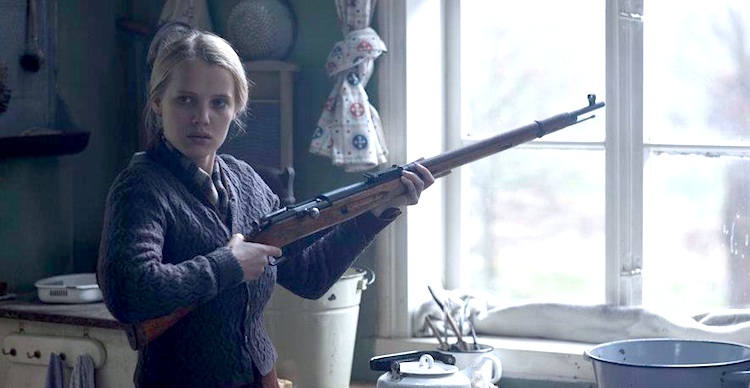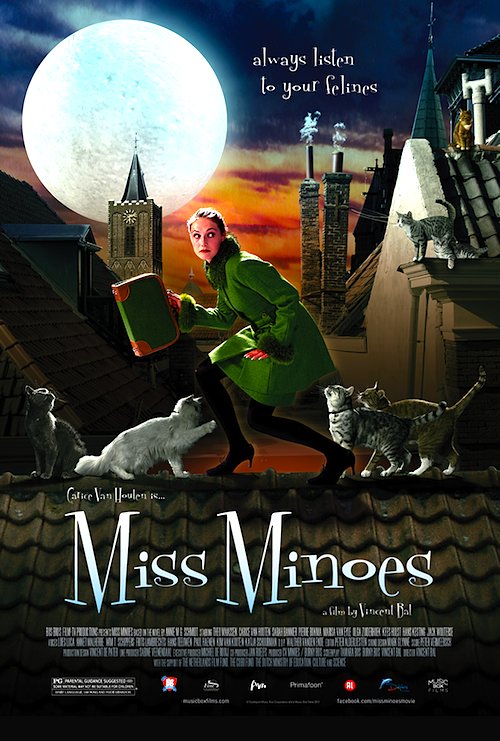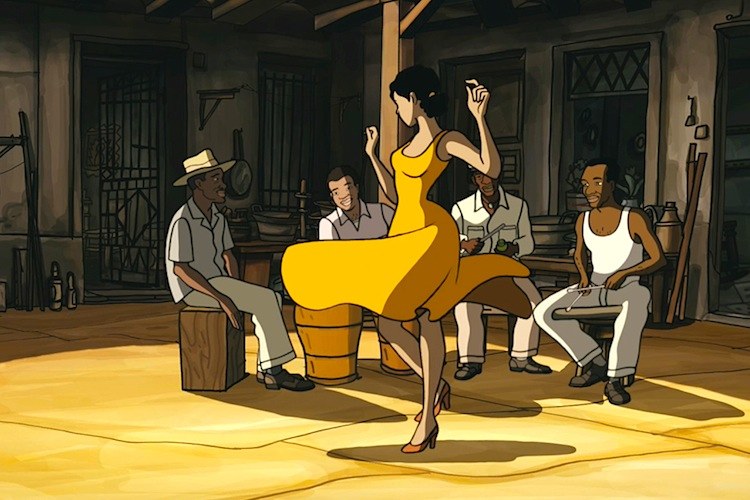By Joe Bendel. The unfettered flow of information is a powerful thing. During the final days of WWII, Tomasz Limanowski smuggled shocking photographic evidence out of a Nazi concentration camp in Poland. Thirty-some years later, his former lover is shocked to discover he is still alive, thanks to a BBC interview. Based on historical events, their incredible story of love and survival is told in Anna Justice’s Remembrance, which screens at the upcoming 2012 New York Jewish Film Festival.
Limanowski is not Jewish, but the resistance fighter is quite resourceful, which makes him a natural scrounger in the camp. He is thought to stand the best chance of breaking out and rendezvousing with the Polish Homeland Army with his comrades’ negatives. However, his decision to bring Hannah Silberstein with him complicates their plans. She is Jewish, speaks German, and is very sick. In fact, unbeknownst to Limanowski, she is pregnant.
Somehow, Limanowski and Silberstein manage to escape (in a markedly well shot and edited sequence), but with her health failing, they are forced to take refuge at his former estate. Of course, it has been confiscated by the National Socialists, but his mother Stefania now lives in a servant’s cottage and Limanowski’s resistance colleague Janusz still tends to the stables. Unfortunately, his mother’s anti-Semitism comes as a rude surprise to her son. It will also be the cause of much future grief when the couple must separate.
Decades later, both lovers assume the other is dead. Silberstein is now Hannah Levine, married to a perfectly nice research doctor in Brooklyn. When she happens to see Limanowski’s British interview on her dry cleaner’s television, it all comes flooding back, inconveniently during an important dinner party.

In a way, Remembrance shares a kinship with Sophie’s Choice, but it is a more forgiving, life affirming film. Levine née Silberstein suffers acute survivor’s guilt that viewers can well understand and easily pardon. Indeed, her complicated but loving relationship with her husband is just as important to the film’s dramatic structure.
The inherent decency of its three principles (this obviously does not include mother Limanowski) is what makes Remembrance such a touching film. It vividly portrays the personal consequences of two successive totalitarian ideologies that conspire to keep the star-crossed lovers apart. In addition to the horrors of the concentration camp, Justice also forthrightly depicts the terror of the post-war Communist regime. Years later, its attempts to excise the Homeland Army from the history books fittingly dovetails with the film’s themes of memory and documentation.
As young Limanowski, Mateusz Damiecki is viscerally intense and totally credibly as the scholarly-looking action hero. Alice Dwyer is also quite compelling depicting the young Silberstein’s drive to survive. Yet, there is something unusually honest and real about Dagmar Manzel and David Rasche’s scenes together as Hannah and Daniel Levine. (Though the Sledgehammer! star still apparently works round the clock in television, Rasche has also appeared in a handful of interesting international films recently – Remembrance being the most notable.)
Pam Katz’s literate screenplay (co-written with the perfectly named Justice) features one of the most moving letters ever heard on film via disembodied narration. Never ginning up phony drama, the sensitively rendered Remembrance consistently rings true. It is one of the best Holocaust-themed features in recent years, considerably superior to Sarah’s Key, Protektor, and Berlin ’36. Highly recommended, it screens this coming Monday (1/16) and Tuesday (1/17) at the Walter Reade Theater as part of the 2012 New York Jewish Film Festival.
Posted on January 10th, 2011 7:55pm.

